20 Movies: Enter The Dragon
"Why doesn't somebody pull out a .45 and, bang, settle it?" -- Bruce Lee
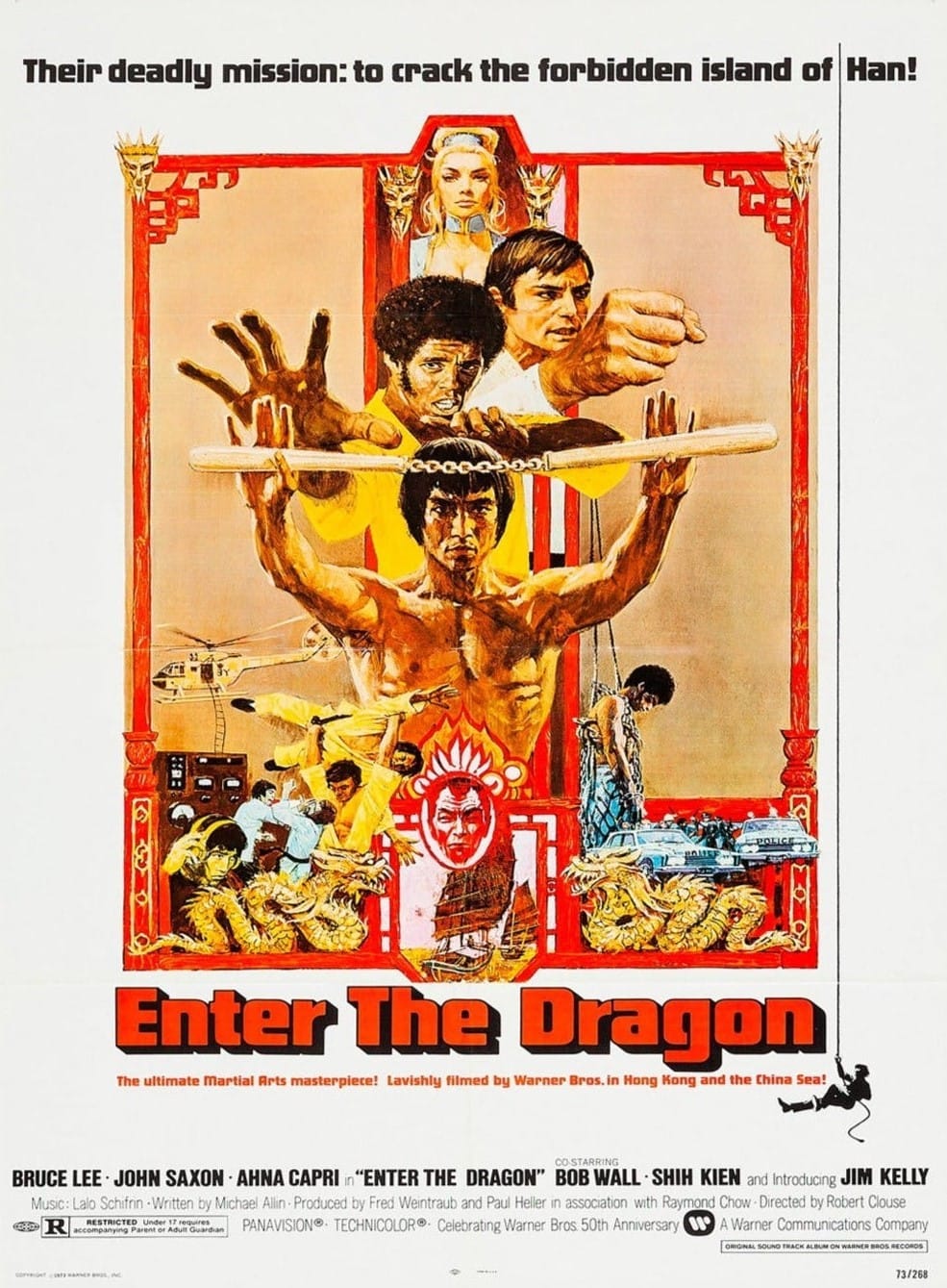
A martial-arts expert enters a secret kung fu competition on a private island, determined to help bring down the evil crime lord whose gang is responsible for the death of his sister.
I'm posting about 20 specific movies because of a social media trend-game. The idea was that you choose 20 movies that greatly influenced you, and then you post the poster of each one, one per day, for 20 days. No reviews, no explanations, just the posters. So, I’m doing that.
But I also wanted to talk about them a little bit, so...
Enter the Dragon was Bruce Lee’s last film before his death on July 20th, 1973 at the age of 32. The film premiered in Los Angeles on August 19th, 1973, one month after his death. I’m not sure when I first saw it, probably less than a decade later, but it was my first Bruce Lee film, which also means that it was probably my first martial arts movie too. Since then, I've seen a lot of them. A lot. And all the Bruce Lee films too. But Enter the Dragon is still my favorite film of his (The Chinese Connection is a close second). It makes sense that it would be, right? A secret agent kung fu master, who is sent undercover to participate in a deadly fighting tournament on private island run by an evil crime lord? That‘s some straight up superhero shit, man, and you know I love that kind of crap.
It’s really hard to quantify how awesome this all was the first time my young nerd mind encountered it without seeming overly effusive and hyperbolic, so I’ll just say this… it was super awesome. So it makes sense that this film would appear in the number seven spot on my 20 Most Influential Films list.
It makes even more sense when you add in the fact that this film stars the name when it comes to martial arts action heroes too.
The man, the myth, the legend… Bruce Lee.
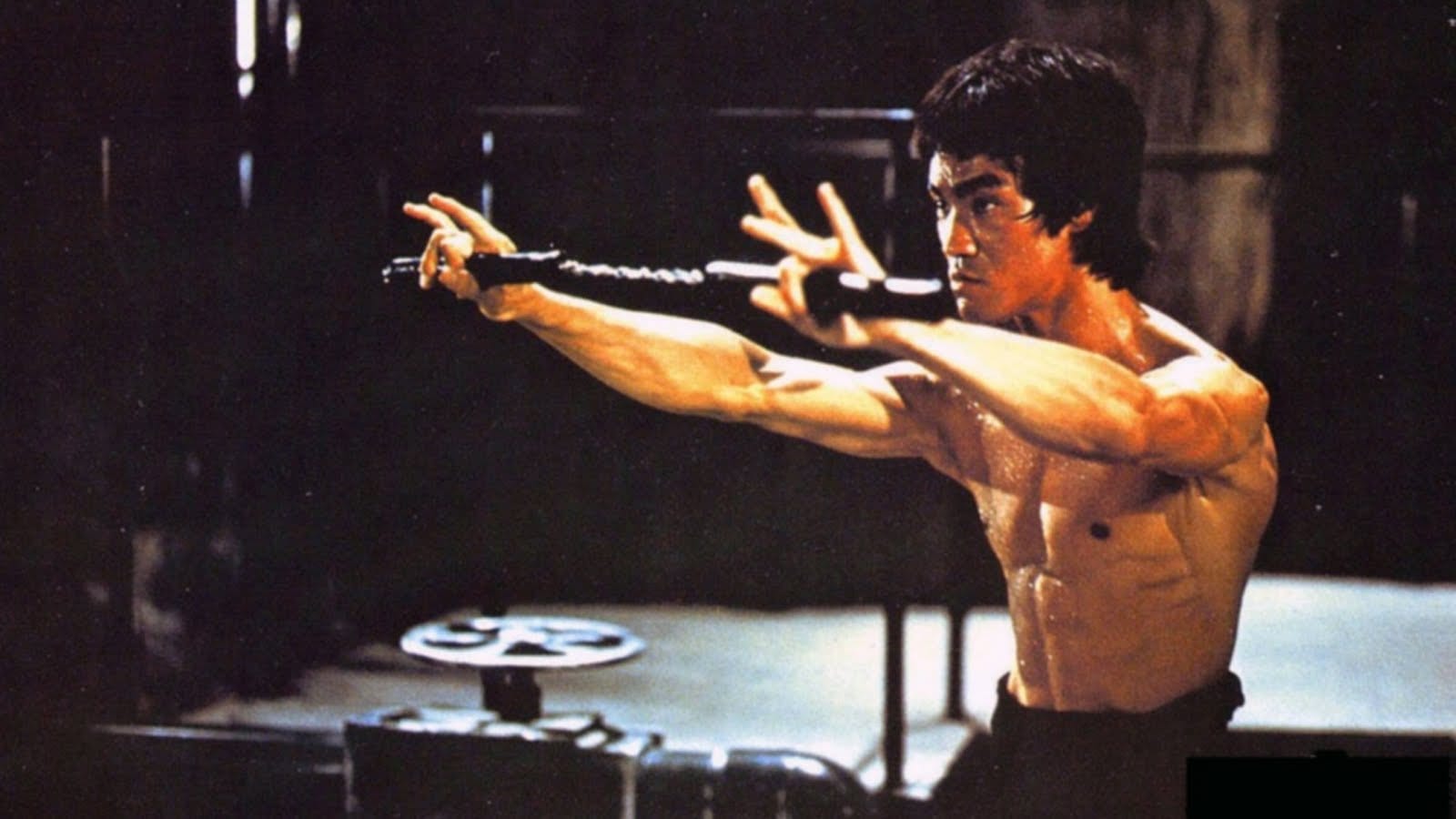
Bruce Lee (born Lee Jun-fan, November 27, 1940 – July 20, 1973) was a Hong Kong-American martial artist, actor, and the founder of Jeet Kune Do, a hybrid martial arts philosophy drawing from different combat disciplines. He trained multiple famous people, like Chuck Norris and Kareem Abdul-Jabbar, both for Hollywood movies, and also through his own studios. While he appeared in dozens of Chinese productions, he is most known for the five American release films he appeared in–The Big Boss ('71), Chinese Connection ('72), The Way of the Dragon ('72), Enter the Dragon ('73), and Game of Death ('78), released posthumously. He is considered to be the most influential martial artist of all time, a pop culture icon who defied the Asian stereotypes prevalent in American films at the time, and one of the people who helped to bridge the cultural gap between East and West. His films, and his life, not only changed the face of martial arts movie, but sparked a massive interest in martial arts in general in the U.S..
While there's a lot of myth and legend and romance surrounding Lee's death, stories of smoky backalley kung fu death matches and the blood-vengence sworn against him for revealing ancient Chinese secrets and techniques to Westerners, and that it was Triads assassins who took him out, at this point, it seems to be accepted that he actually died due to complications stemming from drug use, heat stroke, and hyponatremia.
A big part of the reason why those romantic stories about his death first arose is probably due to the mystique created by this film, released right after his death, with its excitement and action and international mystery, and all while Bruce Lee seemed to be playing himself in the movie, something that was pretty much always kind of the case in his movies. American audiences have always had an issue with being able to discern fact from fiction, a problem which persists to this day, so in their minds, cinema icon Bruce Lee becomes real life Bruce Lee, so of course this movie star was killed by assassins. That's totally normal. Add to that the usual mix of American ignorance, racism, and xenophobia, which has always been a big part of how Western culture views and contextualize Asian cultures, a region that has long been known in Western fiction as the "mysterious orient" and suddenly you've got Bruce Lee, shirtless, with cuts on his chest, striking a fighting pose in a smoky and dank room, as wizened elders with long wispy beards use just a look to order their strange supernaturally-powered martial artists, with their spinning weapons, and their ability to run up walls, punch through stone, and do all sorts of magical kung fu kick-assery, to take our hero out. This kind of shit is also definitely why most American (white) critics at the time snidely dismissed this film as just a low-rent James Bond thriller with elements of Fu Manchu too, because to (white) Americans, it can't be Asian if it doesn't involve "Fu Manchu."
At this point, Enter The Dragon is now considered to be one of the best martial arts action films of all time. Now, whether you agree with that or not, you have to agree that it’s definitely the best illegal bloodsport martial arts tournament movie, an underrated genre in film, with the second best being Jean-Claude Van Damme’s best movie, Bloodsport, obviously.
In the film, Bruce Lee plays a man named Lee, which is basically the acting equivalent of writing your name on the tag of your underwear. Lee is a Shaolin monk recruited by British intelligence—as Hong Kong was the property of the British Crown at the time—to enter a martial arts tournament that is held on a private island near Hong Kong, owned by a man named Han, a Dr. No-like figure (although his cat is definitely more Blofeld-like). Han is the suspected head of a criminal empire of drugs, weapons, and sex trafficking, and since his island is outside of their jurisdiction, the Crown wants Lee to infiltrate Han’s stronghold, find evidence of his crimes while participating in the tournament, and then call in the cavalry.
Lee agrees, hoping his efforts will redeem the honor of the Shaolin temple that Han dishonored when he quit and became a Criminal warlord, but also, Lee wants to get revenge on Han's bodyguard, a man named O'Hara, who is responsible for the death of Lee’s sister Su Lin.
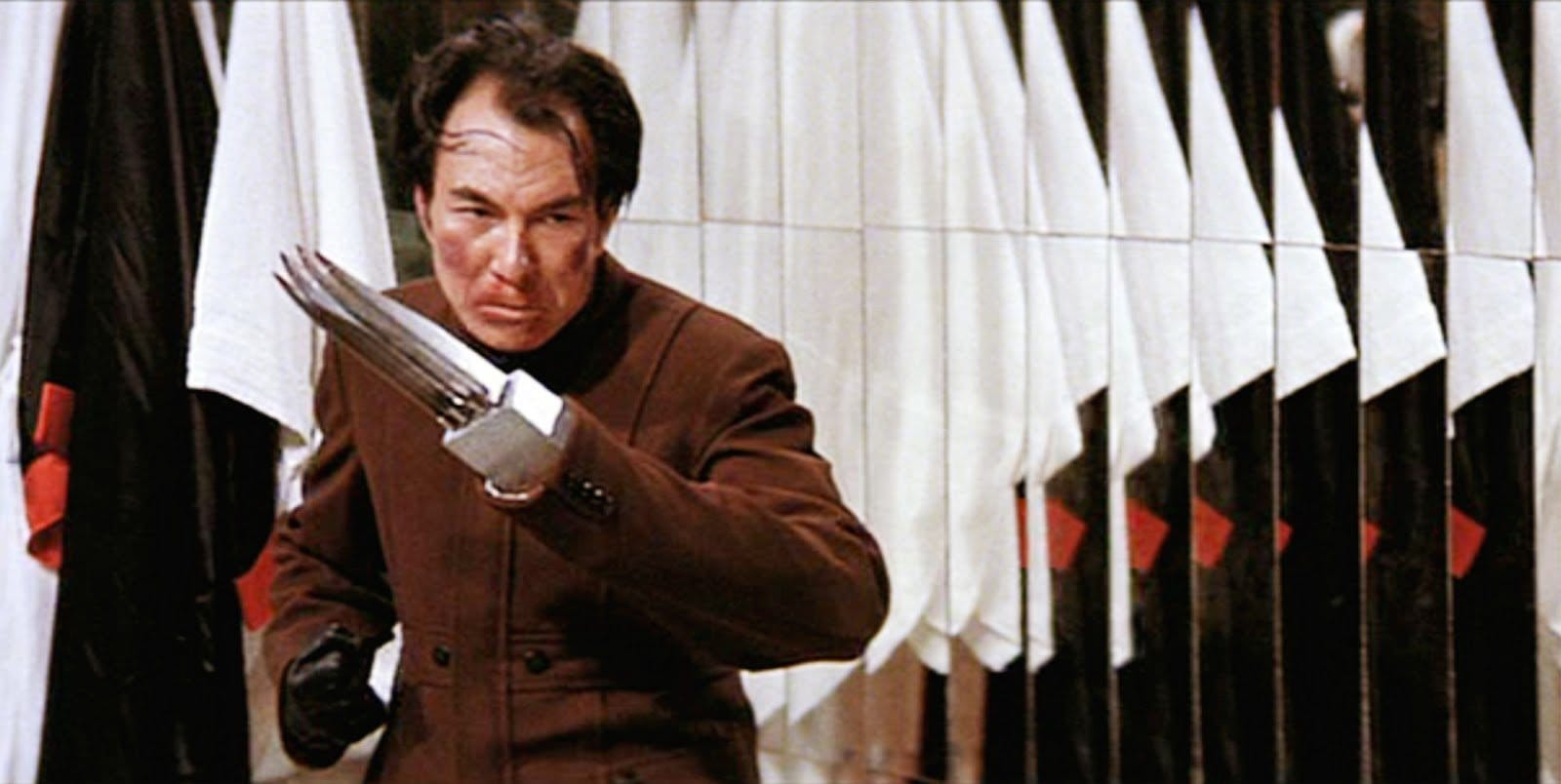
Han hosts this martial arts tournament every couple of years. He mostly does this because he just likes to, but he also uses it to train his criminal army, and to recruit any bad asses that happen to enter it, so it seems pretty simple as far as getting in invite goes. And while the rules are pretty simple—competitors compete one-on-one until one person gets knocked down, I guess—it’s never really explained how it’s decided exactly who fights who, and there really doesn't seem to be much of a tournament structure at all, not to mention the fact that there only seems to be maybe a half dozen outside participants at this tournament.
Obviously, that's not the point of the movie, but still...
Amongst the other competitors who join Lee on the island is a white guy named Roper, an American playboy and gambler, who is on the run because he owes the mob money, and a black guy named Williams, an African-American activist, who is also on the run, but it’s because he had to defend himself against two racist cops in L.A. (an oxymoron), and he beat the shit out of them. Roper and Williams are old friends who served together in Vietnam–known to those who were there as "The 'Nam" or "The Shit" as in... "Were you in The Shit?"–and they are hoping to rig their fights and then make money off the bets.
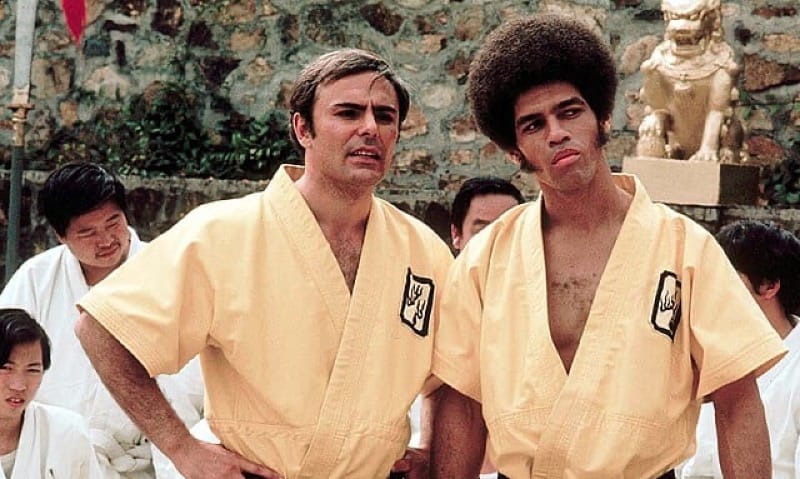
That night, after the first round of fighting, Lee makes contact with a woman in Han's court named Mei Ling. She is a covert Chinese British agent who was placed on the island for the same reason as Lee, but mostly she seems to be there because they realized that there were basically no women with speaking roles in the film, so... she's there, and is very little help. After their meeting, Lee begins to stealthily search the island, and finds a secret entrance to an underground drug lab. Inside, he quickly drops the stealth in favor of beating the crap out of some guards, but he manages to get away before they can identify him.
“Who attacked you?”
“I… I don’t know… it was this… this little guy, and… he… he was just so fast. He hit me so many times, man, and it really hurt, like… a lot. Then I passed out.”
That’s how I imagine it went when the guards were questioned later.
Stymied, the next morning, Han warns the competitors that they’re not supposed to be wandering around outside of their rooms at night, with the heavy implication that beating the shit out of his guards is also frowned upon. Han then punishes his guards by letting the iconic Bolo Yeung beat them all to death. Bolo strides into the scene in the way that only he can, and plays a rather intimidating man named Bolo in the film—again… the acting equivalent of writing your name on your underwear. Bolo is Han's giant enforcer, chief bodyguard, and an all around son of a bitch who enjoys making crazy faces while punching people as hard as he can.
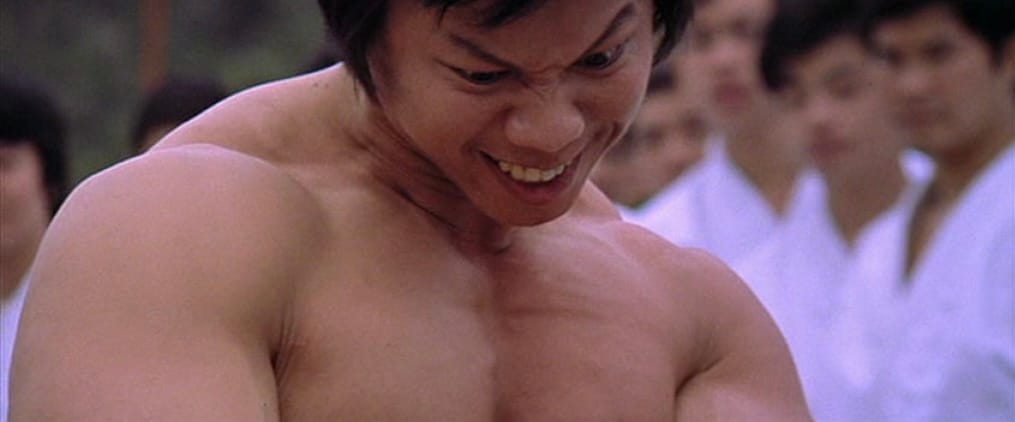
After the day’s Opening Ceremonies of beating some Redshirts to death, the competition resumes. The first fight of the day is Lee versus O'Hara. During the fight, Lee handily beats O’Hara down. Humiliated, O’Hara attacks Lee with a pair of broken bottles, and Lee kills him, avenging Su Lin's death. Embarrassed, Han ends the day's competition, stating that O'Hara's treachery has disgraced him, so he just doesn't feel like watching people beat each other up any more today.
That night, Han accuses Williams (the white guy) of being the one sneaking around and attacking the guards. Williams denies this, but Han isn’t having any of his White Devil bullshit, so he beats Williams to death with his iron hand. Later on, Han tries to recruit Roper (the Black guy) to run his operations in America, and decides that his best pitch is to threaten to imprison Roper on the island with a bunch of other martial artists that he already has locked up, or worse... and it's at that point that he shows Roper the beaten corpse of his friend Williams, just before he throws William's body into a nearby pit of acid.
Roper says okay, sure, sounds great, where do I sign.
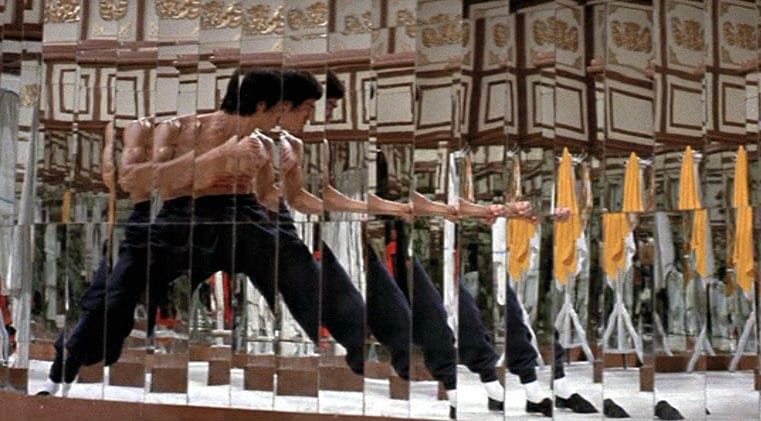
The same night, Lee infiltrates the underground base again, finds a bunch more bad guy stuff, and manages to send a message to British Intelligence just before he is captured, but not before he beats the crap out of a whole bunch of guards.
The next morning, Han tries to get Roper to fight Lee, but Roper refuses, and as punishment, Han has Roper fight Bolo, but Roper beats Bolo by kicking him in the balls super hard, which is never cool, and while it's never really clear if this nut-kick killed Bolo or not, I'm sure Bolo was probably wishing that it had. After the shock of seeing a grown man kick another man in the testes during a fight wears off, Han orders all his men to kill Lee and Roper, with the heavy implication to especially kill Roper, because... not cool, my dude.
After that, it’s on like Donkey Kong, as everybody is kung fu fighting, and they're all fast as lightning. Things get extra crazy once the filmmakers realize that they have something for Mei Ling to do, and she releases all of the imprisoned martial artists, who then join Bruce and Roper in the fight.
Seeing his moment of triumph evaporate, Han tries to evacuate, but Lee corners him in a Hall of Mirrors. There, Han puts on his claw hand, and strikes at Lee from a dizzying array of reflections. He almost takes Lee down too, but Lee figures out the trick to fighting in a Hall of Mirrors, and starts smashing all the mirrors. Soon enough, he spots Han easily and hoists the villain upon his own petard.
The film ends with Bruce giving a thumb’s up as the British military arrives.
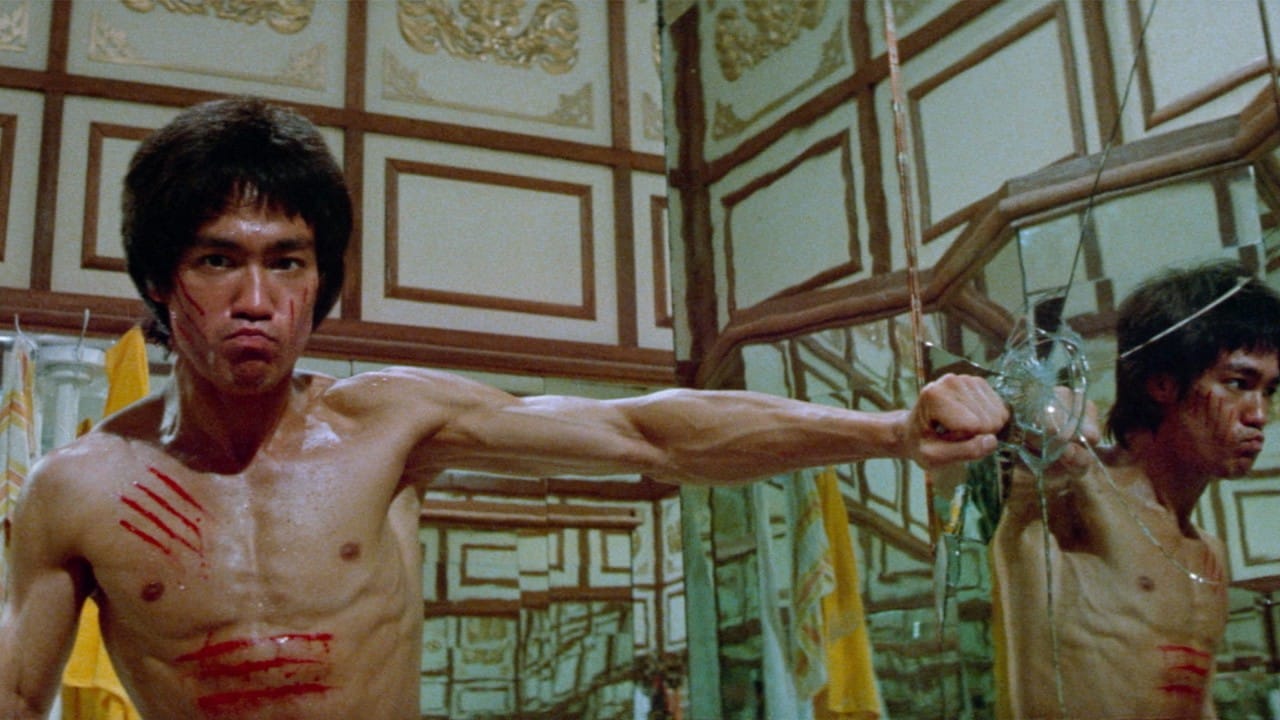
Enter the Dragon is estimated to have grossed over $400 million worldwide (equivalent to an estimated $2 billion, if adjusted for inflation) and that’s with a reported budget of $850,000.
This makes Enter the Dragon the most successful martial arts film ever made, and also one of the most well-known ones in America, I would assume. And like I said, it’s considered one of the greatest martial arts films of all time, despite the fact that many of the fights seem to end with the victorious fighter jumping heavily on their opponent, to the sound of a sickening crunch.
That aside, Bruce Lee is amazing to watch. His speed and power and grace is incredible, and when he gets to show-off his nunchuck skills? Mesmerizing. Plus, he absolutely tears up a bunch of bad guys up with a pair of escrima sticks, which is amazing to watch, and is also the direct reason why escrima sticks are now the preferred weapon of the first Robin, Dick Grayson, now known as the superhero with the best ass in DC Comics, Nightwing.
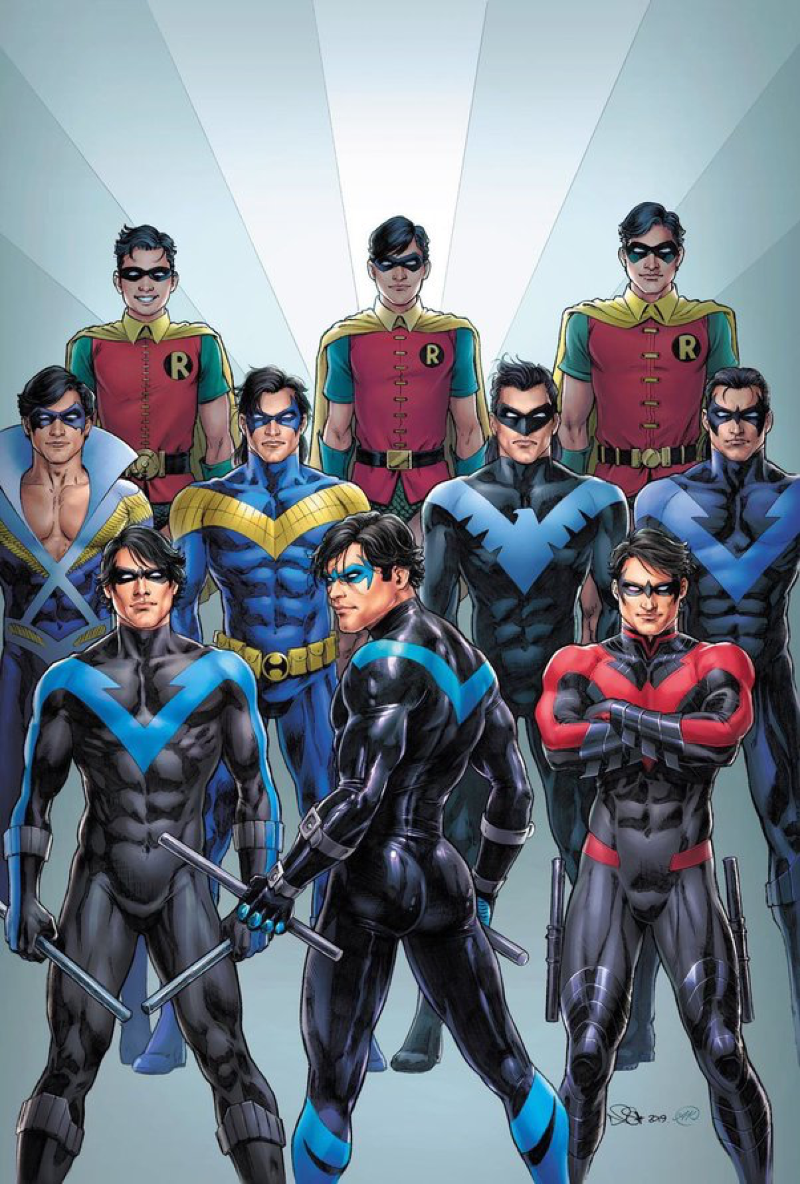
It's because Bruce Lee is so cool that we can forgive this film for its somewhat uneven pace at times, pretty lackluster story, and the way anything that doesn't involve Bruce Lee kicking ass is a bit of a snoozer. Still, credit where credit is due, this was one of the first films to combine martial arts action with spy film stuff, setting a tone that is still followed today. It also leaned into the blaxploitation genre too, which helped to bring about a whole series of similar productions that combined martial arts and blaxploitation.
And that's why we have Wu-Tang, and they ain't nothing to fuck with.
Finally, in 2004, Enter the Dragon was selected for preservation in the United States National Film Registry by the Library of Congress as being "culturally, historically, or aesthetically significant" which it very clearly is.
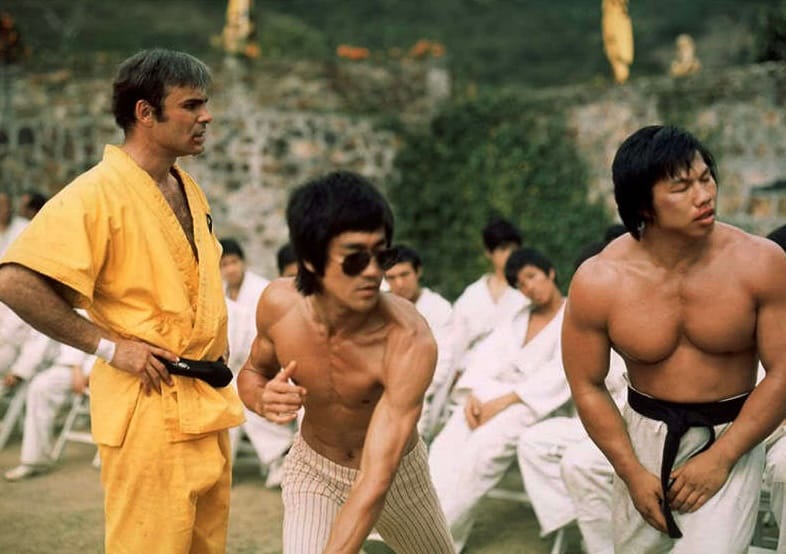
Because, simply put, there are few films as influential as Enter the Dragon.
The success of this film not only directly contributed to mainstream worldwide interest in martial arts movies, but martial arts as well. It is also a clear direct inspiration for numerous action films, television shows, video games–especially the fighting games--and comic books.
The room of mirrors has appeared in multiple things, from The Man with the Golden Gun, which came out the following year, to Conan the Destroyer, and even on to John Wick 2. In the Kentucky Fried Movie, the "A Fistful of Yen" segment is a half-hour spoof of Enter the Dragon, where the hero is enticed into infiltrating the villain's lair by the prospect of killing "fifty, maybe sixty people." Bolo Yeung is the unforgettable bad guy in Bloodsport, which is in itself an Enter the Dragon homage, but he has the role mainly because he was an iconic bad guy in Enter the Dragon, and in the film, he even repeats Bruce Lee's line about "boards not hitting back"–something that was originally said by Bruce Lee to Bolo's character in Enter the Dragon–to Jean Claude Van Damme's character. And not only is the famous video game Mortal Kombat an Enter the Dragon homage, but the first movie is practically a remake. On and on and on...
Basically any time you have a story which features the hero traveling somewhere remote to participate in some kind of shady tournament... it's a good bet that's a reference to Enter the Dragon.
What I'm saying here is... in the end, if you only ever watch one martial arts film, then it should probably be this one (or maybe Fists of Legend starring Jet Li, or Ip Man 1 and 2 starring Donnie Yen, because they're amazing, also... both of which are basically remakes of The Chinese Connection, a story that is at least partially based on the life story of Bruce Lee's real life Kung fu master, Ip Man, the famous martial arts grandmaster).
But seriously, my point is... come for the Bruce, stay for the Bruce.
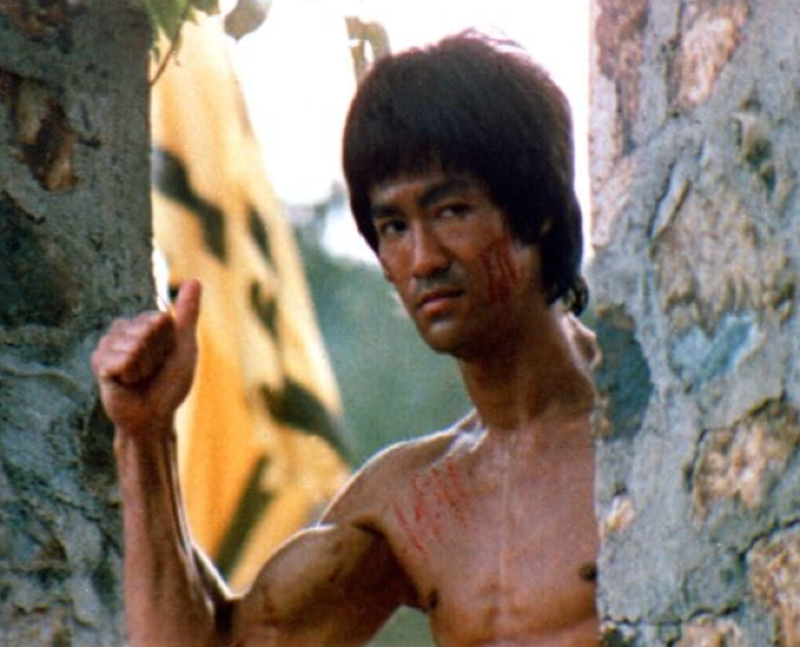
Big thumbs up.
